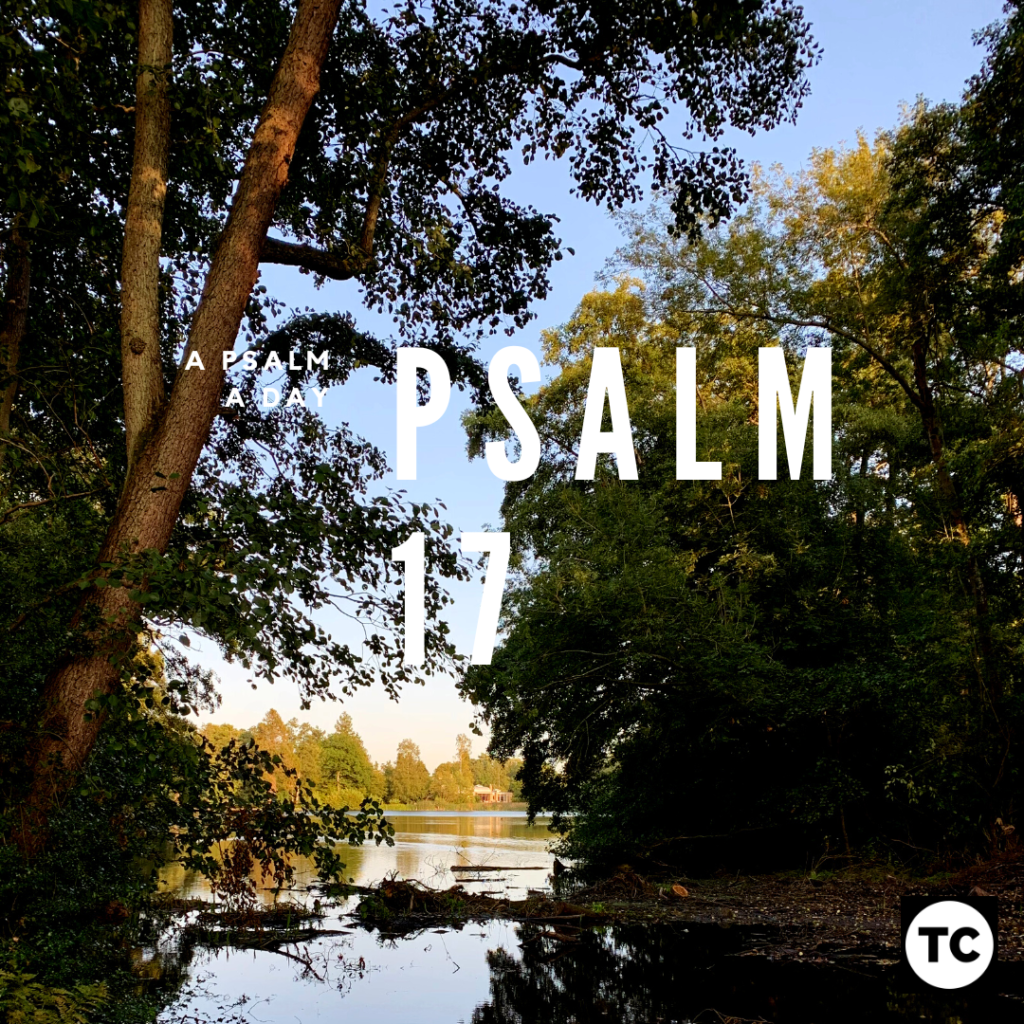For September 2022, I’m trying to read and reflect – briefly – on a Psalm each day. I’ll read the Psalm, pray, and then ponder a few questions:
- What is this Psalm about?
- What does this Psalm teach about God?
- How does this Psalm connect to God’s people today?
I’ll close the post with a simple prayer, trying to draw the themes together.

More than halfway through September, here’s Psalm 17:
1 Hear me, Lord, my plea is just;
listen to my cry.
Hear my prayer—
it does not rise from deceitful lips.
2 Let my vindication come from you;
may your eyes see what is right.
3 Though you probe my heart,
though you examine me at night and test me,
you will find that I have planned no evil;
my mouth has not transgressed.
4 Though people tried to bribe me,
I have kept myself from the ways of the violent
through what your lips have commanded.
5 My steps have held to your paths;
my feet have not stumbled.
6 I call on you, my God, for you will answer me;
turn your ear to me and hear my prayer.
7 Show me the wonders of your great love,
you who save by your right hand
those who take refuge in you from their foes.
8 Keep me as the apple of your eye;
hide me in the shadow of your wings
9 from the wicked who are out to destroy me,
from my mortal enemies who surround me.
10 They close up their callous hearts,
and their mouths speak with arrogance.
11 They have tracked me down, they now surround me,
with eyes alert, to throw me to the ground.
12 They are like a lion hungry for prey,
like a fierce lion crouching in cover.
13 Rise up, Lord, confront them, bring them down;
with your sword rescue me from the wicked.
14 By your hand save me from such people, Lord,
from those of this world whose reward is in this life.
May what you have stored up for the wicked fill their bellies;
may their children gorge themselves on it,
and may there be leftovers for their little ones.
15 As for me, I will be vindicated and will see your face;
when I awake, I will be satisfied with seeing your likeness.
What is this Psalm about?
This Psalm of David offers a unique insight into David’s heart, at a time where he was being hunted and persecuted, yet was simultaneously in tune with God. Psalm 17 models self-awareness, blending personal reflection with memory and proclamation of deep theological truth. Interestingly, David is arguably seeking to move God to action because of his own goodness/righteousness – rather than that of God. It is perhaps instructive that this Psalm does not record God acting – even through it ends on a hopeful high note.
What does this Psalm teach about God?
I think that Psalm 17, as well as affirming and reinforcing basic truth about God like his love (v7), judgement (v3), justice (v13), salvation (v14) and presence (v15), say something else. As alluded to above, I think that Psalm 17 clearly shows that God is not moved by human effort – even the best of human effort. God is inscrutable. Not distant, but not bribed or persuaded by us. And this perhaps echoes the ‘likeness’ in the closing phrase – any form of human goodness (for example David’s claim of resisting bribes in verse 4) is merely an echo, an image and a likeness, of the ultimate perfect goodness of God.
How does this Psalm connect to God’s people today?
This Psalm does two things, I think. Firstly, and echoing several Psalms we have looked at to date, it emphasises the refuge and goodness of God – in a time when God’s people might be thinking he is absent. Secondly, and more importantly, it offers a challenging vignette of the gospel. No matter how solid our efforts, or how good we appear, we cannot appease God or force him to act. He inscrutably will, but not because of anything we do. And the very last part of the very last verse of Psalm 17 hints, I think, with the great canonical theme of humanity being made in the image and likeness of God (Genesis 1), of an encounter with someone who is like that, and yet so much more (Colossians 1).
A prayer from Psalm 17
Lord, help me to serve you and live for you in ways that echo the righteousness that comes from you. Help me not to waver under trial, but turn to you. Thank you that your grace abounds, and that one day I shall see your face. Amen.
Leave a Reply